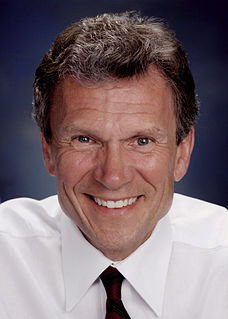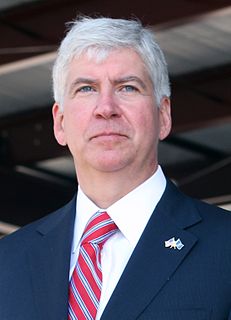A Quote by Oprah Winfrey
Related Quotes
By the time you get to year six, there's never a break . . . and you get tired. There's always a crisis. It wears you down. This has been a White House that hasn't really had much change at all. There is a fatigue factor that builds up. You sometimes don't see the crisis approaching. You're not as on guard as you once were.
Trust doesn't come haphazardly. It really has to be built over time. And that trust has to happen really at times when there isn't a crisis. That's why I think having regular meetings and conversation when there's no crisis, when you can build trust and a friendship and a relationship that allows for better dialogue and far more consequential deal-making can occur when a crisis does come up.
I`d like to address the people of Flint. Your families face a crisis. A crisis you did not create and could not have prevented. I want to speak directly, honestly and sincerely to let you know we are praying for you, we are working hard for you, and we are absolutely committed to taking the right steps to effectively solve this crisis.



































